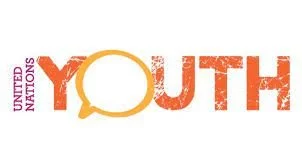Through years of programming and evidence generation, we have learned that focusing exclusively on improving services or systems may not lead to desired outcomes. As such, programs are increasingly focusing on working with individuals, communities, and other groups to demonstrate the impact of utilizing SBC approaches. Understanding what influences behaviors, as well as the barriers to changing them, are critical to bringing about desired changes in these behaviors
IFES Civic Education | Guidebook
Civic education, when rooted in human rights and democratic principles, seeks to develop knowledge of democratic rights and how to exercise them in civic and political processes. It is achieved through activities that aim to develop one’s democratic attitudes, values, and behaviors.5 Civic education can take many forms, including formal, school-based learning, and non-formal learning outside of school systems; it can also take place against a range of democratic landscapes.
The European Youth Cards Association | Promoting Youth Participation
The European Youth Card Association (EYCA) has 40 member organizations in 38 countries. All are committed to promoting youth mobility and active citizenship for young people. EYCA member organizations believe that the young people they work with are not citizens of the future, they are citizens of Europe today and, as such, should be fully involved in decisions and developments that affect them. Member organizations develop and promote participation opportunities for young people – opportunities that give young people the chance to influence their communities, organizations at local and national levels, and what happens in society at large.
Meaningful Youth Engagement
Meaningful youth engagement is a participatory process in which young people’s ideas, expertise, experiences, and perspectives are integrated throughout programmatic, policy, and institutional decision-making structures so as to best inform outcomes. This process requires young people to be involved in all levels and stages of program, policy, campaign, and initiative development, including all stages of design, implementation, and evaluation; this is especially true of those programs that directly affect their lives.
Investment Guidelines For Youth In Agrifood System In Africa
Africa as a region has the highest percentage of youth in the world, with an estimated 420 million youth aged 15 to 35 (AfDB, 2018), and its share of rural youth is projected to rise to 37 percent by 2050 (IFAD, 2019a). Young people as producers and traders of food, as workers, innovators, and entrepreneurs, and as policy actors are already playing an important role in agrifood systems. Given the appropriate support and enabling environment, they can take advantage of new opportunities, develop innovative solutions, and contribute to building sustainable and resilient agrifood systems.
What's Next? | Claiming the Democratic Future
The young believers of democracy are responding to the democratic erosions by demonstrating their democratic ambitions and transforming political spaces through innovation, localized and intersectional approaches, arts, and digital media. Discontent with traditional political institutions has encouraged young people to create innovative and alternative spaces of political engagement. Thus, young people are at a critical juncture in reversing the anti-democratic trends, but the lack of a global youth campaign is a lost opportunity to capitalize on youth innovation to strengthen democracy.
Enhancing Youth Political Participation Throughout The Electoral Cycle
Young people between the ages of 15 and 25 constitute a fifth of the world’s population. While they are often involved in informal, politically relevant processes, such as activism or civic engagement, they are not formally represented in national political institutions such as parliaments and many of them do not participate in elections. This can impact on the quality of democratic governance. The inclusion of youth in formal politics is important, as the 2011/2012 Arab States popular uprisings and various Occupy movements have demonstrated. In countries in transition, fresh ideas and new leadership can help to overcome authoritarian practices. Where youth-led protests have forced authoritarian regimes from power, significant frustration is likely to arise if youth are not included in new formal decision-making. This can destabilize democratization and accelerate conflict dynamics.
Engaging Young People In Open Government | A Communication Guide
Open government strategies and initiatives aim to support democracy and inclusive growth. They are an important tool to increase transparency, accountability, and integrity, whilst building stronger relationships between government and citizens allowing them to participate in policy-making. As the OECD Recommendation of the Council on Open Government underlines, open government, and stakeholder participation initiatives should include specific efforts “dedicated to reaching out to the most relevant, vulnerable, underrepresented, or marginalized groups in society”. Although youth are a highly heterogeneous group with different backgrounds, skills, and capacities, they often find it more difficult than other segments of society to make their voices heard. Youth can be considered as one of the groups that requires specific efforts.
Youth Candidacy in Nigeria’s 2023 Elections
In the 2023 general elections in Nigeria, the Independent National Electoral Commission (INEC) will conduct elections in 176,846 polling units for elections into the office of the President, Governors, National Assembly, and State House of Assembly seats. Eighteen political parties nominated a total of 15,336 candidates for the one Presidential, 28 governorship elections, 469 legislative seats in the National Assembly, and 993 legislative seats in the State Houses of Assembly. According to the African Youth Charter, youths are classified as persons between the ages of 18 – and 35 years. The National Youth Policy defines 15 – 29 as the youth age bracket for Nigeria.
Youth, Political Participation And Decision-Making
They can be a creative force, a dynamic source of innovations, and they have undoubtedly, throughout history, participated, contributed, and even catalyzed important changes in political systems, power-sharing dynamics, and economic opportunities. However, youth also face poverty, barriers to education, multiple forms of discrimination, and limited employment prospects and opportunities.









